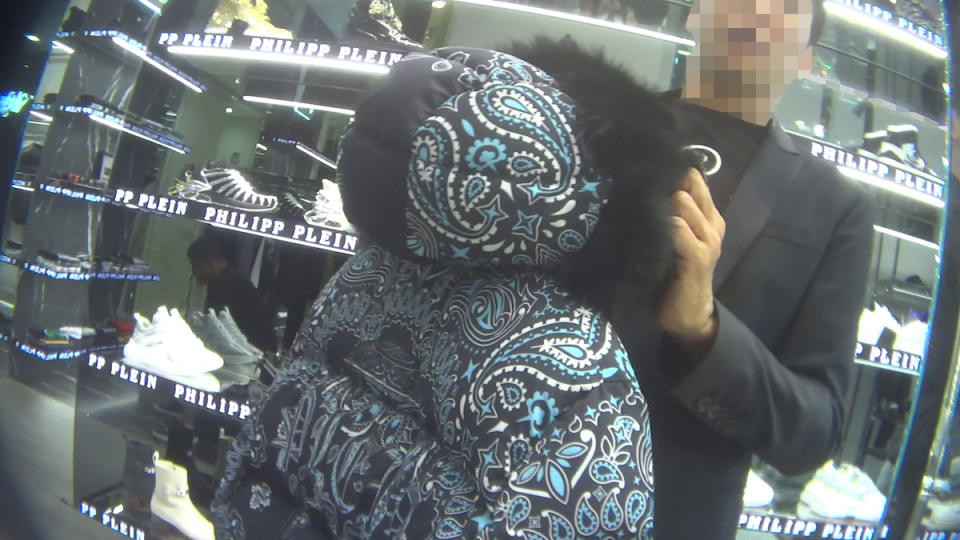Are These California Retailers Violating the Fur Sales Ban?

While fur bounces between being trendy or tacky, one thing remains true: around 100 million animals are bred and killed on factory farms each year globally, with around five million additional animals caught and trapped in the wild, per a new report by the Material Innovation Initiative (MII). Not to mention the alternative, synthetic fur, which releases microplastics into the environment.
With that in mind, the Humane Society of the United States has checked out just how effective the California fur ban has been. The animal rights nonprofit went undercover to investigate 25 California-based retailers “openly skirting” the law by selling new fur products.
More from Sourcing Journal
Copyright Clarity: New Bill May Force Developers to Divulge Works Used to Train AI Models
California Law Enforcement Nabs Suspects Accused of Stealing $23K of Lululemon Merch
That law would be Assembly Bill 44, authored by Assemblymember Laura Friedman, which passed in 2019 and makes the selling or manufacturing of new animal fur products in California—through brick-and-mortar and online sales—illegal. The bill went into effect at the start of 2023, giving retailers three years to stop selling fur products. If violated, penalties range between $500-$1,000 per violation; each item sold warrants an individual charge.
The organization’s investigation—which took place in 2023—found that six out of those 25 retailers (24 percent) were “displaying and offering” illegal fur for sale.
“The fur trade is declining around the globe as corporate and public policy aligns with the values of the public,” PJ Smith, fashion policy director at the Humane Society, said. “Investigations at fur farms have shown there is simply no way to confine wild animals in small cages for their entire lives and expect anything but cruelty.”
Flier Furs, a family-owned and operated business in Beverly Hills, allegedly had at least 25 large fur pieces on display. A store employee told the Humane Society investigator that the shop carries items made from mink, chinchilla, fox and rabbit and has additional inventory available “in the back.” Per the video footage, the hangtags appear to be new; however, the sales associate never verbally states that the pieces are new. However, he does explain that a particular chinchilla coat is available in a different color, suggesting it’s a newly made product.
Flier Furs did not respond to Sourcing Journal’s request for comment.
At Philipp Plein’s Beverly Hills location, the investigator identified a blue paisley coat with fur trim and asked a store employee if the fur was real. Although the employee initially indicated that the fur was not real—noting California’s prohibition on fur sales—he later told the investigator that the fur was, in fact, real. The coat’s tag confirms that the trim is raccoon fur.
“When you have real big fur, you cannot sell, but when it’s a small piece like this, they do,” the store employee said in the video footage, referring to fur trims.

Philipp Plein did not respond to Sourcing Journal’s request for comment.
Last October, the investigator called House of Furs and Leather, a Sacramento storefront, and indicated she wanted to buy new—not used—fur. An employee allegedly confirmed this would be possible. When Sourcing Journal called the shop, an automated recording stated it is out of business. Its website is also no longer in service.
Furs by La Fayette, a Los Angeles outpost, allegedly only sells new fur products, per this investigation. However, the store told Sourcing Journal that it stopped importing new fur products two years ago and only has a handful of vintage pieces remaining. The video footage indicates otherwise, showing an array of new fur coats.
Bizakis Furs, a family-run operation in Tustin, told the investigator that its fur garments are authentic and “not very old at all.”
Bizakis Furs told Sourcing Journal that it is currently in litigation, fighting allegations not made by the Humane Society but by another animal rights organization, and cannot speak on the topic.
The investigator also hit up Bond Furs, a small fur shop in Monrovia, and saw various real fur pieces throughout the store. A store employee allegedly told this investigator that Bond Furs does, in fact, sell new fur garments, despite the law.
When asked about this employee, the store owner confirmed that no such employee exists, “as far as he knows.” What he does know, however, is that someone has been hitting up various furriers in the Los Angeles area and attempting to buy new fur on behalf of bigger stores.
“People come in and try to pull the wool over our eyes and say that they want to buy new or whatever, and we just can’t help them in that way,” the owner told Sourcing Journal.
It’s also worth noting that Bond Furs—along with the majority of these suspects—very publicly advertise selling vintage or secondhand fur pieces. Plus, there is no discernible way to determine if the new pieces were made within the past three years.
Regardless, it was only the mom-and-pop retailers of the 25 visited who were accused of any wrongdoing. The likes of Louis Vuitton, Dior and Fendi were also visited, but passed the test.
“Innovative alternatives to fur that are animal-free and plastic-free are available, making animal fur obsolete,” Smith said. “The end of the fur trade is in sight, and for the animals’ sake, that day can’t come soon enough.”

